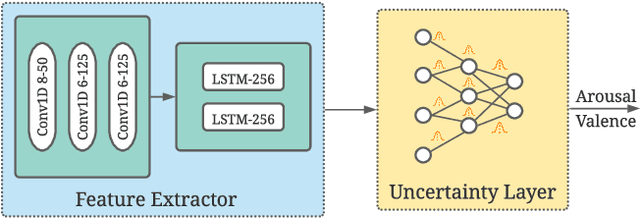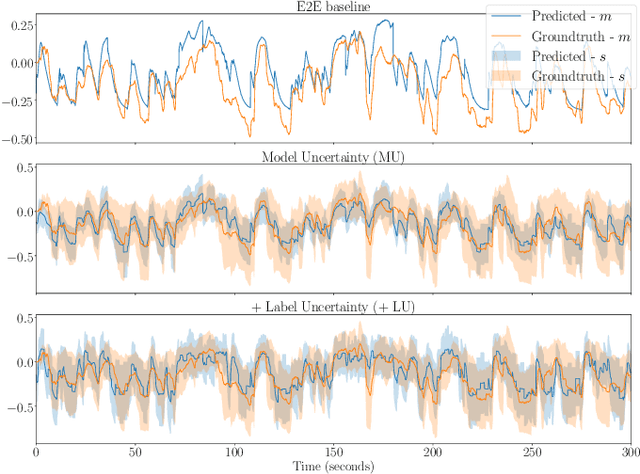End-to-end label uncertainty modeling for speech emotion recognition using Bayesian neural networks
Paper and Code
Oct 07, 2021



Emotions are subjective constructs. Recent end-to-end speech emotion recognition systems are typically agnostic to the subjective nature of emotions, despite their state-of-the-art performances. In this work, we introduce an end-to-end Bayesian neural network architecture to capture the inherent subjectivity in emotions. To the best of our knowledge, this work is the first to use Bayesian neural networks for speech emotion recognition. At training, the network learns a distribution of weights to capture the inherent uncertainty related to subjective emotion annotations. For this, we introduce a loss term which enables the model to be explicitly trained on a distribution of emotion annotations, rather than training them exclusively on mean or gold-standard labels. We evaluate the proposed approach on the AVEC'16 emotion recognition dataset. Qualitative and quantitative analysis of the results reveal that the proposed model can aptly capture the distribution of subjective emotion annotations with a compromise between mean and standard deviation estimations.
 Add to Chrome
Add to Chrome Add to Firefox
Add to Firefox Add to Edge
Add to Edge